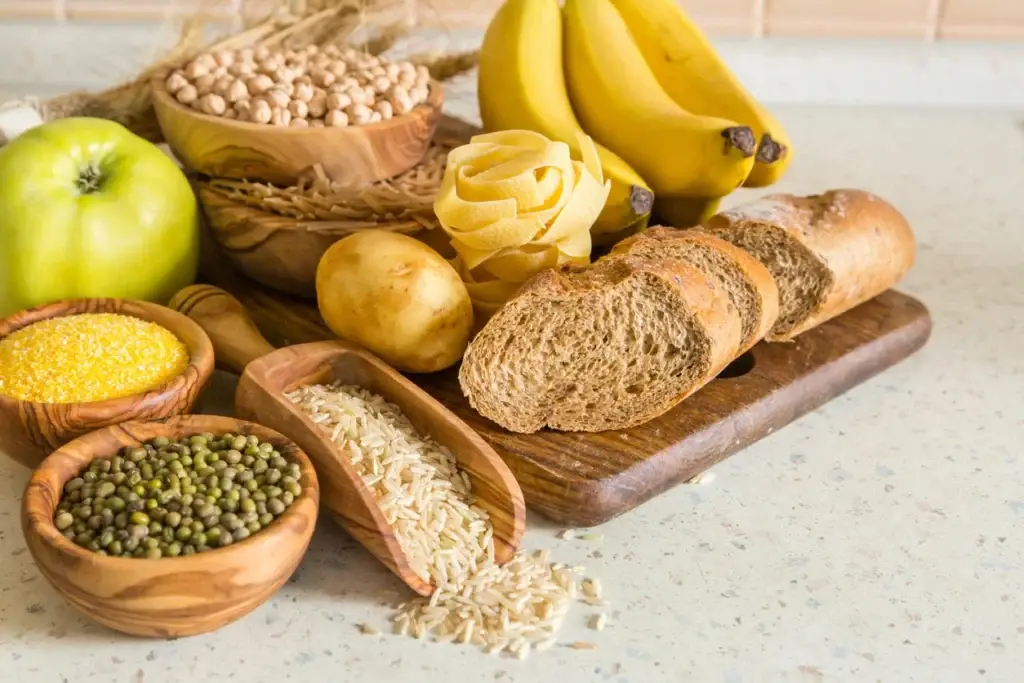
When game day is around the corner, a lot of hockey players stick to a long-standing tradition—pounding a giant bowl of pasta the night before. The idea? Load up on carbs to fuel performance. But here’s the catch: while carbohydrates are crucial for energy, timing and balance matter more than simply eating a mountain of spaghetti.
The Science Behind Carb-Loading
Carbohydrates are the body’s primary fuel source during high-intensity activities like hockey. They are stored as glycogen in the muscles and liver, providing the quick energy you need to explode off the line, win puck battles, and maintain endurance throughout the game (Burke et al., 2017). However, the misconception that eating a large pasta meal the night before a game optimizes performance is not entirely accurate. Here’s why:
Sluggishness & Digestion – Eating a massive meal loaded with carbs the night before a game can leave you feeling heavy, bloated, and sluggish. Large pasta portions can spike insulin levels, leading to a crash later (Campbell et al., 2021), and excessive food intake can disrupt sleep—something you don’t want before a big game.
Delayed Energy Utilization – Glycogen stores don’t fill up instantly. The process takes time, meaning your biggest carb intake should be spread out over 24–48 hours leading up to the game (Jeukendrup & Gleeson, 2018), not just the night before.
Fatigue & Blood Sugar Spikes – Overloading on simple carbs without enough protein and fats to balance them can cause energy fluctuations, meaning you might feel great that night but sluggish by game time (Burke et al., 2017).
Smarter Carb Timing for Peak Performance
Instead of relying on one giant meal the night before, a structured approach to carb intake ensures sustained energy without the unwanted sluggishness.
48 Hours Before: Begin increasing your carbohydrate intake with balanced meals. Prioritize complex carbs like quinoa, brown rice, sweet potatoes, and whole grains, paired with quality protein and healthy fats to stabilize energy levels (Slater & Phillips, 2011).
Night Before: Have a well-balanced meal, but keep it moderate in portion size. A good mix might be a lean protein (chicken or fish), a complex carb (quinoa or whole wheat pasta in a reasonable portion), and some veggies for added micronutrients. Avoid excessive sauces or added sugars that can disrupt digestion and sleep quality (Halson, 2019).
Game Day: The pre-game meal, eaten 3–4 hours before puck drop, is your real energy driver. This should be a high-carb, moderate-protein, low-fat meal—think oatmeal with honey and banana, or a chicken-and-rice combo to keep glycogen topped off without digestive distress (Burke et al., 2011).
30–60 Minutes Before Game: Quick-digesting carbs like fruit, a small granola bar, or a sports drink can provide that last-minute burst of energy (Jeukendrup & Gleeson, 2018).
Common Carb-Loading Mistakes to Avoid
Even with the right strategy, some players still make mistakes that can hinder performance. Here’s what to watch out for:
Overeating the Night Before – Stuffing yourself with carbs doesn’t mean you’ll store more glycogen. Your body can only store so much, and overeating just leads to sluggishness and bloating (Slater & Phillips, 2011).
Neglecting Hydration – Carbs need water to be properly stored as glycogen. If you’re not drinking enough fluids, you won’t fully maximize your energy reserves (Sawka et al., 2007).
Relying Only on Simple Carbs – Simple sugars provide quick energy but burn out fast. Without complex carbs to sustain you, you’ll be running on fumes by the second period (Burke et al., 2017).
Hydration: The Overlooked Key to Energy Storage
Carb-loading is only part of the equation—hydration plays an equally critical role. Glycogen storage requires water, meaning if you’re dehydrated, your muscles won’t be able to store and utilize energy effectively. In the 48 hours leading up to your game, make sure you’re consuming plenty of fluids, especially electrolytes, to support hydration and prevent cramping (Sawka et al., 2007).
The Bottom Line
Carbs are crucial, but how and when you eat them matters just as much as how much you eat. Instead of crushing a massive bowl of pasta the night before a game, focus on gradually increasing your carb intake in the 48 hours leading up to puck drop. This ensures your muscles are fully stocked with glycogen without the risk of feeling sluggish, bloated, or energy-deprived when it matters most.
Want to elevate your game? Dial in your nutrition like you do your training—because small changes can make a big difference when you hit the ice.
References:
Burke, L. M., et al. (2017). “Carbohydrates for training and competition.” Journal of Sports Sciences, 35(22), 2101-2108.
Burke, L. M., et al. (2011). “Pre-exercise carbohydrate intake and endurance performance.” Sports Medicine, 41(3), 181-198.
Campbell, B., et al. (2021). “Nutritional considerations for high-intensity athletes.” International Journal of Sport Nutrition and Exercise Metabolism, 31(2), 123-136.
Halson, S. L. (2019). “Sleep and recovery: impact on performance.” Current Sports Medicine Reports, 18(1), 3-8.
Jeukendrup, A., & Gleeson, M. (2018). Sport Nutrition: An Introduction to Energy Production and Performance. Human Kinetics.
Sawka, M. N., et al. (2007). “American College of Sports Medicine position stand: Exercise and fluid replacement.” Medicine & Science in Sports & Exercise, 39(2), 377-390.
Slater, G. J., & Phillips, S. M. (2011). “Nutrition guidelines for strength sports.” Clinical Sports Nutrition, 4, 566-590.
